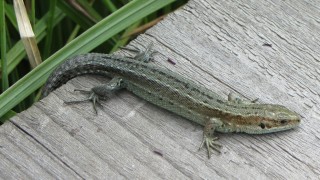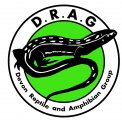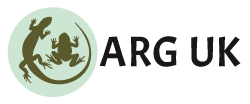About us
About Us
Welcome to the Devon Reptile and Amphibian Group (DRAG) website.

Who are we?
We are a friendly, volunteer led group who have a passion for reptiles and amphibians and a willingness to share this passion, knowledge and experience with others.
We are made up of individuals with a variety of backgrounds and interests, from those with a general interest in the natural world to experienced herpetologists, ecologists and conservationists.
What do we hope to achieve?
Here are some of the group’s key aims and objectives:
- To identify and protect important reptile and amphibian sites in the county of Devon
- To support partner groups and organisations in conserving these sites
- To better understand species distributions, populations and potential negative trends and to help mitigate or reverse those trends
- To promote conservation through education and public engagement
- To collect and submit data to Devon Biodiversity Records Centre (DBRC)
How do we achieve this?
- Through monitoring and surveying of known sites
- Through visiting potential sites of interest
- By working along with landowners and organisations in providing advice and consultations on habitat management and species monitoring
- By encouraging everyone to report sightings of reptiles and amphibians on Record Pool either using the Devon Reptile and Amphibian Group (DRAG) website (under the 'Record a sighting' tab) or by visiting https://www.recordpool.org.uk.
- By holding events and by providing resources that aim to raise awareness and educate people about these amazing animals and their habitats
- By recruiting more members
News
News
Scaling up support: Cornwall to host amphibian and reptile conference
Supporters of frogs, toads, newts, snakes and lizards will be gathering in Cornwall on Sunday 3rd March for a South West regional meeting of Britain’s Amphibian and Reptile Groups.
Staged at Cornwall College Newquay, the conference is being organised jointly by the Cornwall Reptile and Amphibian Group (CRAG) – a specialist group within Cornwall Wildlife Trust – and the College’s Student Invasive Non-Native Group (SINNG).
The programme promises a lively mix of presentations on local, national and global conservation issues. Topics include Cornwall’s rare sand lizards, latest results from SINNG’s studies of non-native amphibians in the county, and a report on the current status of adders in the UK.
Delegates will also draw inspiration and ideas from research as far afield as Spain and Tanzania to help conserve species closer to home. Practical guidance will be given on recording systems and on biosecurity measures to prevent the spread of diseases through fieldwork.
There will be lighter moments, including a session entitled ‘Adam, Eve and Hissing Sid’, as well as time for informal discussion.
“One of the best things about Amphibian and Reptile Group meetings, nationally and regionally, is that they give people a chance to encourage each other’s efforts and share information, says CRAG Co-ordinator Mark Nicholson.
“Most of those who attend will be members of the various county ARGs, which together make up ARG UK. We’re a close-knit community of specialists and we work very effectively together to make sure these creatures get their fair share of conservation effort.”
The event’s sponsors are environmental consultancy companies CGO Ecology Ltd and Herpetologic Ltd, as well as the College itself.
Anyone interested in attending is asked to contact Pete Mycock at newtpete@hotmail.co.uk for details.
Toad patrols - volunteers needed!
Mortalities and, in some cases entire population losses, are an increasing problem for toads where they cross roads to reach breeding ponds in the spring. In Devon we made good progress in 2012 setting up new toad patrols and recruiting volunteers for new and existing patrols thanks to the hard work of last years Patrol Co-ordinator, Charlie Bellamy.
Unfortunately Charlie is unable to help us this year so DRAG are looking for a volunteer to take up the position of voluntary Devon Toad Patrol Co-ordinator. This person would collect records of toad crossings, create a database of sites and recruit volunteers to undertake patrols, in partnership with other conservation groups such as DWT local groups. It will also include arranging press coverage to encourage sightings and recruit volunteers from the general public. Charlie and myself are available to provide information and support.Please get in touch if you are interested in taking on the role of co-ordinator or if you are able to assist in patrols in your area (let me know where).
If, unfortunately, we are unable to find a sutiable Coordinator, we recommend contacting Froglife, see the webpages http://www.froglife.org/toadsonroads/.
Thanks
Nicky Green CEnv MIEEM
DRAG Chair
Tel: 01647 253652
Email: nicky@green-ecology.co.uk
Web: www.green-ecology.co.uk
PS. I am running the Plymouth Half Marathon on April 28th 2013 to raise money for Cancer Research in memory of a dear friend and colleague.Please donate to this worthy cause by visiting www.justgiving.com/Nicky-Green4
An Introduction to Great Crested Newts – 13th/14th and 20th/21st April 2013 at Braunton Burrows, north Devon.
These two courses are run by Nicky Green CEnv MIEEM, Chair of the Devon Reptile & Amphibian Group (DRAG) and has been working with great crested newts since 2003. The course location is the spectacular Braunton Burrows sand dunes SSSI on the picturesque north Devon coast.
Course cost is £100 (exclusive of required overnight accommodation) and all proceeds will be donated to DRAG. To reserve a place email nicky@green-ecology.co.uk. The courses on both weekends are the same.
Items covered include: -
- Ecology
- Identification
- GCN distribution – Devon and UK
- Survey planning, timing, interpretation, health & safety
- Survey methods including making a bottle trap
- Habitat Suitability Index
- Legislation
- Survey and mitigation requirements – an LPA perspective
- Introduction to mitigation methods
- Field visits to practice survey methods
Christmas cards for DRAG
I have painted some images for Christmas cards with a distinctly reptile and amphibian theme, see Gallery. You may recognise some well-known spots on Dartmoor where all herps, that shun hibernation, head to for the best places to play in the snow. The A6 100% recycled cards and envelopes are for sale at £1.50 each or £1.25 for three or more plus P+P. 25% of card profits go to DRAG for surveys, habitat improvements and to raise awareness. The cards are blank inside for your own message.
Please email mabelart@rocketmail.com if you are interested. Go to mabelart.com to see close-ups.
A4 and A3 prints are also available.
Note that the colours may vary slightly due to different computer screen settings - but they'll still look great! Make sure you allow plenty of time to avoid the Christmas postal rush...
Cheers
Mabel
DRAG slashing and lopping at Chudleigh Knighton Heath
DRAG volunteers will be improving newt habitat at Chudliegh Knighton Heath tomorrow. Enthusiastic volunteers will be getting stuck into clearing scubby vegetation to allow for a digger to reach the existing pond at a later date. We will then be clearing the ground as best we can to keep newts out of the footprint of the works and remove vegetation from the pond to stop it from silting up. If you interested in joining in with similar events in the future please get in touch to become a member of DRAG (it's free!) and get email alerts on events and other activities.
Mabel Cheung
Resources
Resources
Introduction to Reptile Identification and Surveying
Adder Bites - Helpful Links
Dogs and Adders
Dogs 'n' Adders - Information Leaflet
Snakes in Gardens
Snakes are fascinating creatures and for many, finding one in the garden is a real treat and a memorable experience.
However, for many others this can be a disconcerting and even worrying situation. This can be as a result of misunderstandings often fed by negative and often inaccurate media reports and rumours. Please be assured, though, that there is no reason to worry and that these situations can be resolved fairly easily.
The vast majority of reported snake sightings in gardens turn out to be either a Grass Snake or a Slow worm (a legless lizard which resembles a snake). Both species are harmless and are best left alone.
We only have one venomous snake species, the Adder, which is rarely found in gardens unless your property is situated close to favourable habitat. Even then, the adder is a very shy animal and avoids human activity whenever it can. Again, the best course of action is to leave it alone and allow it to move off when it’s ready. The likelihood is that it is just passing through anyway.
Occasionally, DRAG gets asked about relocating snakes. For all kinds of practical reasons this isn’t something we would do and would actually be the opposite of what our group encourages which is reptile conservation.
The best recommendation we can provide is to learn as much as possible about the reptile you have seen in your garden. We will happily help you identify it and provide related advice such as understanding which features of your garden have likely attracted it in the first place.
Please don’t hesitate to get in touch and send a photo or description of the snake to devonrag@hotmail.com or to our Facebook group at http://www.facebook.com/groups/DevonARG/.
It would really help if you could record your sighting on Record Pool either using the Devon Reptile and Amphibian Group (DRAG) website (under the 'Record a sighting' tab) or by visiting https://www.recordpool.org.uk.
Please remember that reptiles are protected under UK law.
Species Guides
Species Guides
Devon's Reptiles
In the UK we have 6 native reptile species, each of which can be found in Devon.
To find out more about a particular species click on it's name which will then jump to the relevant information.
Adder Vipera berus
Grass Snake (or Barred Grass Snake) Natrix helvetica
Smooth Snake Coronella austriaca
Slow Worm Anguis fragilis
Viviparous (or Common) Lizard Zootoca vivipara
Sand Lizard Lacerta agilis
Devon's Amphibians
In the UK we have 7 native amphibian species, 6 of which can be found in Devon.
To find out more about a particular species click on it's name which will then jump to the relevant information.
Great Crested Newt (Triturus cristatus)
Smooth Newt (Lissotriton vulgaris)
Palmate Newt (Lissotriton helveticus)
Common Toad (Bufo bufo)
Natterjack Toad (Epidalea calamita)
Common Frog (Rana temporaria)
For information on the adder please click on the fact sheet link in blue or you can watch the animated video below.
Grass Snake Natrix helvetica
Tadpoles
We've all seen them right, often in large numbers early in the year in even the smallest bodies of water ..... but what are tadpoles?
Tadpoles are the larval stage in the life cycle of an amphibian. In the UK the tadpoles we most often encounter will belong to the Common frog (Rana temporaria) or Common toad (Bufo Bufo).
Amphibians go through several stages before reaching their adult form. This incredible process is known as metamorphosis. Below is a video showing in detail how this process takes place.
Membership
Membership
Why become a member?
Well, big things start in small ways and becoming a member of the Devon Reptile and Amphibian Group (DRAG) is one step you can take towards protecting the reptiles and amphibians in your local area and beyond.
Whether you’re dropping us a line by email, submitting a photo or participating as a volunteer in a reptile or amphibian survey your contribution is valued all the same. Everything we can do to keep the ‘conversation’ going is great for the reptiles and amphibians of Devon.
The more members that join the greater the potential for activity. Put simply, without members we couldn’t do what we do and it would be great to have you join us.
Membership benefits:
- · Become part of a group of like minded individuals and keep in touch via social media or email
- · Invitations to events, training and volunteering opportunities
- · A quarterly newsletter
- · Opportunities to see and work with elusive and hard to find species
- · Opportunities to learn new skills
- · Gain practical experience in conservation
- · The opportunity to have a positive, lasting impact on Devon’s wildlife
Some of the activities that you will be invited to can include talks by local experts, guided walks, bioblitzes and even species identification and survey skills training.
Opportunities for volunteering could include surveying, habitat management or helping out at nature festivals.
Have a voice in what we do.
We value your feedback and encourage it.
For example:
- · Do you have an idea for an event or training?
- · Is there a site near you that we are unaware of?
Drop us a line and let us know at devonrag@hotmail.com.
How do I join?
If you would like to become a member please send your request by email to devonrag@hotmail.com.
FAQ
- · Question: How much does membership cost?
Answer: Membership is free to join.
- · Question: How long will my membership last?
Answer: Currently, membership is on a rolling annual basis.
- · Question: Do I need special knowledge, qualifications or experience to become a member?
Answer: No. There are no prerequisites, nor is there any minimum level of commitment required.
- · Question: Can I be a member but not volunteer?
Answer: Yes. Whilst volunteering makes a big difference to what we do, we totally understand that not everyone’s circumstances allow for it.
- · Question: How do I cancel my membership?
Answer: You can cancel your membership at any time by sending your request to devonrag@hotmail.com.
Photo gallery
Photo Gallery
Contact us
Contact Us
If you want to join DRAG and our email group, or have a general query, please contact a member of DRAG admin:
Please be patient with us, this email address is not checked every day!
Upcoming Events
Upcoming events will be listed here.
Latest News
- A tale of six lizards
25/07/2021 1:49 pm - Upcoming Talk
15/02/2016 3:22 pm - Reptile Training Oppourtunity
28/04/2014 9:40 am - DRAG great crested newt training courses delivers the goods
23/05/2013 10:46 pm - Sand lizard summary and pics
09/05/2013 10:23 pm
© Devon Reptile & Amphibian Group (DRAG)
Website hits: 79875
View All | Find out how to get a mini-website for your ARG
© ARG UK Local Groups mini-websites 2026
Wind powered websites by Aye-aye Design.

